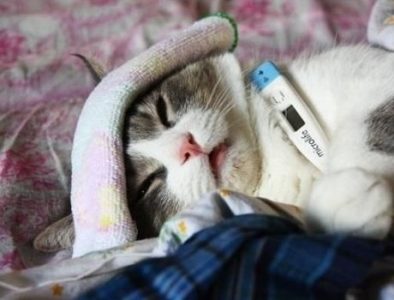Statin surprise, hope for long haulers, what’s in your guts, and more
26 Feb 2021
Posted by Andrew Kantor
The most important thing about Johnson & Johnson’s vaccine
Sure, the single dose is great. So it the fact that it doesn’t need a crazy cold freezer for storage. Oh, and the side effects are milder. But what’s seemingly glossed over in the coverage is this: It seems not only to protect the vaccinated, but also reduce their ability to infect others.
According to the FDA, the J&J vaccine results in “a 74% lower likelihood of asymptomatic transmission to others at 71 days compared to placebo.”
Hope for Covid long-haulers
It seems that one in three people who recover from Covid-19 become “long haulers” — experiencing symptoms long after the virus is gone. Brain fog is one of the scariest, but fatigue. muscle weakness, and insomnia are also common.
Good news: Not only have these long haulers gone from “occasional anecdotes” to acceptance as the real deal (the NIH is calling the condition “PASC” for “Post-Acute Sequelae of SARS-CoV-2 infection”), but now NIH is launching a four-year initiative to study it — and maybe find answers.
About that brain fog
Those shifty Danes might have taken the first step to understanding the cause of brain fog: capillary damage. Specifically, damage to capillaries (“widespread cerebral microvascular flow disturbances”) leads to reduced blood flow in the brain, which can lead to inflammation. Then both the reduced oxygen and increased cytokines can hamper the production of serotonin. Presto: mood changes and brain fog.
Clinics are opening
With more than 28 million Americans having been infected, that means millions of people will be dealing with those long-hauler symptoms. Popping up now are clinics to help them.
Patients usually have a one-hour long intake appointment to review their medical history before looking at their current coronavirus-induced symptoms. “From that point, the post COVID office will make appropriate referrals. So that would be, for example, to cardiology, neurology, rehab medicine, or psychiatry.”
No, statins don’t cause muscle pain; age does
Have you heard people who take statins complain that it gives them muscle aches? British researchers decided to test this. What they found: It ain’t the statins. It’s the people taking them.
After the trial ended, there was no difference in the frequency or severity of muscle symptoms scored by participants, even though they had previously said they had severe muscle symptoms when taking statins.
Said the authors: “While in these older age groups, aches and pains are indeed common, we convincingly show they are not made worse by statins and their pain is not caused by statins.”
Saving you a click
If someone has had Covid-19, should they still get vaccinated? Yes.
It’s busy in your guts
Looking for something new to research? Biologists at the UK’s Wellcome Sanger Institute opened a whole new doorway. They discovered more than 70,000 never-before-seen gut viruses. (These bacteriophages come from 28,000 people, so it’s not like we all have the same 70,000.)
Gut bacteria are clearly important, but now there’s a whole new virus ecosystem to explore. Wheeee!
“As bacterial communities are a critical component of our gut, it’s not difficult to imagine that phages could be paying a key role in maintaining a healthy equilibrium in our intestine.”
In case you were wondering
The latest CDC data say that 57.6 percent of Americans 20 years and older used a dietary supplement in the previous 30 days. Of note, use was higher among women than men (63.8 versus 50.8 percent).
Then again, this was based on information from the Before Times — 2017 and 2018 — so it may be different today.
Sick kittens can help sick children
Diarrhea kills 120,000 kids a year worldwide, caused by a particular type of E.coli bacteria. In fact, there’s a specific variant of this bacteria emerging — called atypical enteropathic Escherichia coli (aEPEC) — that is “increasingly associated with diarrheal disease in humans and in kittens.”
Yep, this same bacteria kills human children and kittens. And when we say “the same bacteria,” we mean it has identical genetics. That’s unusual, but lucky, because, researchers at North Carolina State say…
The findings point to kittens as a potentially invaluable model for further exploration of aEPEC on the molecular level to inform treatment approaches for both humans and felines.



